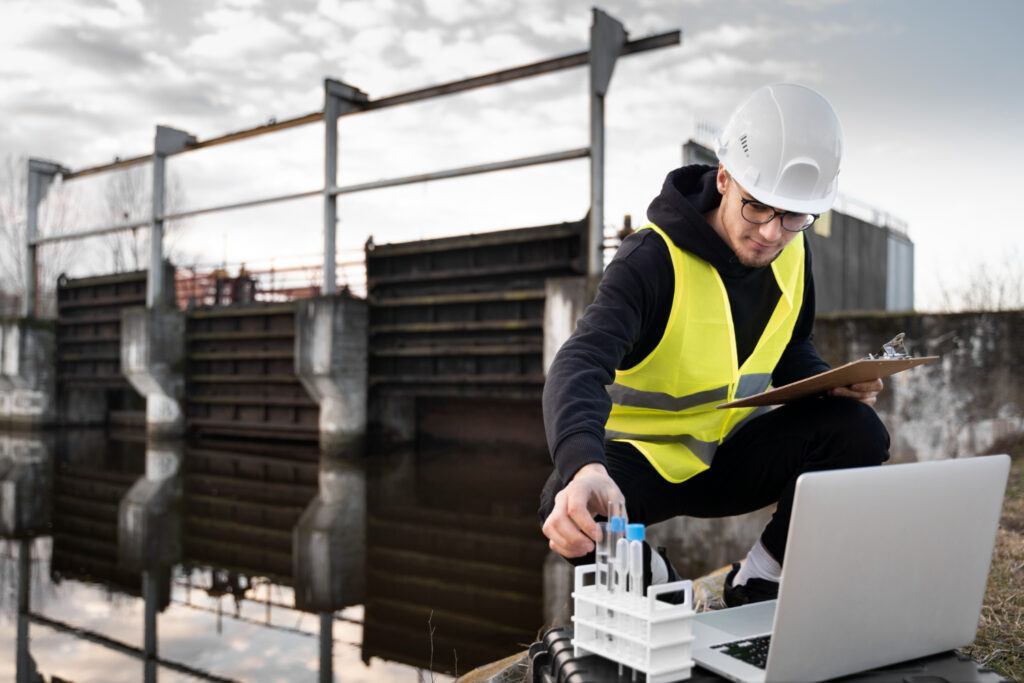Table of Contents:
- Introduction
- Understanding Industrial Wastewater and Sludge
- Traditional Methods vs. Advanced Dewatering Techniques
- Benefits of Sludge Dewatering Equipment Rental
- Technological Innovations in Dewatering Processes
- Regulatory Landscape and Environmental Considerations
- Successful Implementation of Advanced Dewatering Techniques
- Future Trends and Challenges
Introduction
In industrial waste management, effectively handling wastewater and sludge poses significant challenges for businesses across various sectors. However, advanced dewatering techniques have revolutionized traditional approaches, offering more sustainable and efficient solutions.
Industries generate vast quantities of wastewater and sludge as byproducts of their operations, necessitating efficient and cost-effective methods for disposal or reuse. Traditionally, businesses relied on cumbersome and often environmentally damaging practices such as landfilling or incineration to manage sludge. However, the evolution of dewatering technologies has opened up new avenues for sustainable waste management.
Advanced dewatering techniques, including centrifugation, belt filter presses, and chemical additives, offer industries a more efficient way to separate solids from sludge liquids. These methods reduce the volume of sludge for disposal and facilitate the recovery of valuable resources. Moreover, the availability of sludge dewatering equipment rental has democratized access to these technologies, enabling businesses of all sizes to adopt them without the burden of upfront investment.
Understanding Industrial Wastewater and Sludge
Industrial wastewater encompasses various liquids contaminated with pollutants, including chemicals, heavy metals, and organic compounds. This wastewater is generated from manufacturing, mining, agriculture, and municipal sewage treatment. When treated, wastewater often produces sludge—a semi-solid residue comprising solid particles, water, and dissolved materials.
Traditional Methods vs. Advanced Dewatering Techniques
Historically, industries relied on gravity drainage or mechanical pressing to dewater sludge, often resulting in high moisture content and low solids concentration in the dewatered cake. However, advanced dewatering techniques offer superior efficiency and performance, enabling industries to achieve higher solids in the dewatered sludge while minimizing energy consumption and operational costs.
Benefits of Sludge Dewatering Equipment Rental
The rental model for sludge dewatering equipment offers several advantages for industrial facilities. Firstly, it provides flexibility, allowing businesses to access state-of-the-art machinery without significant capital investment. Smaller businesses or those with variable wastewater flows can significantly benefit from this, as they may scale their dewatering processes to meet their demands. Additionally, rental services often include maintenance and technical support, ensuring optimal performance and reliability of the equipment.
Technological Innovations in Dewatering Processes
Recent advancements in dewatering technologies have led to the development of more efficient and versatile equipment. Centrifuges, for example, utilize centrifugal force to separate solids from liquids, offering rapid dewatering and high throughput capabilities. Similarly, belt filter presses employ porous belts to squeeze the moisture out of the sludge, producing a dewatered cake with minimal energy consumption. Moreover, using chemical additives can enhance the dewaterability of sludge, resulting in faster drainage and higher solids content in the dewatered cake.
Regulatory Landscape and Environmental Considerations
Stringent regulations governing wastewater discharge and sludge disposal have driven industries to adopt advanced dewatering techniques to ensure compliance and minimize environmental impact. Moreover, growing awareness of environmental sustainability has prompted businesses to explore greener alternatives for waste management, further emphasizing the importance of advanced dewatering technologies.
Successful Implementation of Advanced Dewatering Techniques
Several industries have implemented advanced dewatering techniques to improve waste management practices. Case studies highlighting the benefits of these technologies in terms of cost savings, environmental compliance, and resource recovery can serve as valuable examples for other businesses looking to optimize their dewatering operations.
Future Trends and Challenges
Looking ahead, the future of industrial waste management is poised for further advancements in dewatering technologies, driven by innovation, regulatory requirements, and environmental considerations. However, technological complexity, operational efficiency, and cost-effectiveness remain significant hurdles that industries must address to maximize the potential of advanced dewatering techniques.

